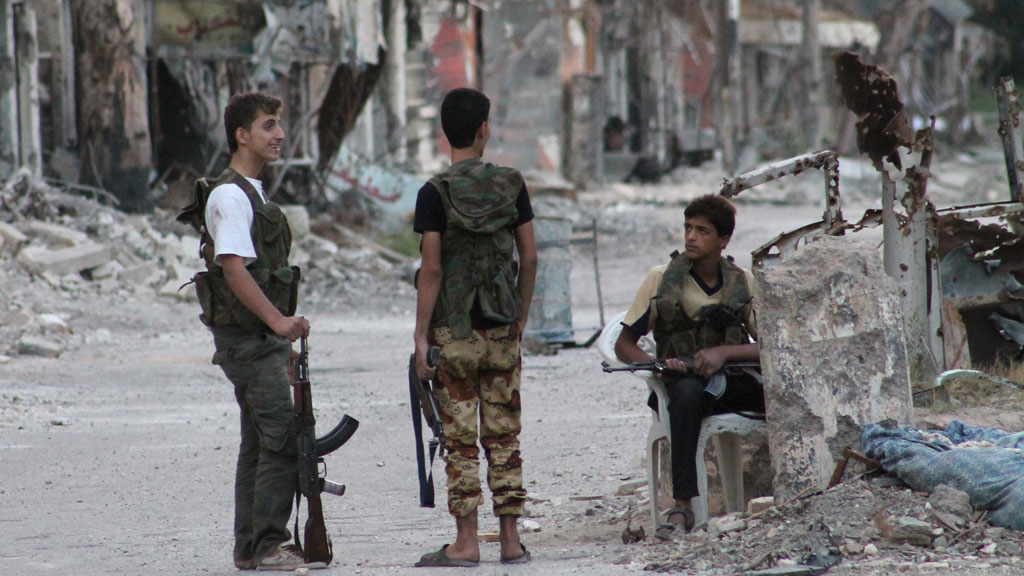Major powers agree Syria draft resolution
Ending weeks of diplomatic deadlock, the United States and Russia agree on a UN Security Council draft resolution designed to rid Syria of its chemical weapons.

The so-called P5 permanent members – Britain, the US, Russia, France and China – will present the text to the full council for approval.
Samantha Power, the US ambassador to the United Nations, said a deal was struck with Russia “legally obligating” Syria to give up its chemical stockpile and the measure went to the full security council in a closed-door meeting on Thursday night.
Two important diplomatic steps today: an agreed date for nuclear talks with #Iran and P5 agreement on a UNSC #Syria Resolution
— William Hague (@WilliamJHague) September 26, 2013
P5 agree on binding and enforceable draft #UNSC resolution text to eliminate #Syrian CW arsenal. We shall introduce text to full SC tonight.
— Mark Lyall Grant (@LyallGrant) September 26, 2013
US, Russian, French and British diplomats told reporters the vote could come as early as Friday evening, provided the executive council of the Organisation for the Prohibition of Chemical Weapons in the Hague approves a plan for the destruction of Syria’s poison gas arsenal beforehand.
“I know that some (foreign) ministers are extending their stay in New York in order to participate in that vote,” Russian Ambassador Vitaly Churkin told reporters.
The agreement emerged from intense negotiations at the United Nations with Russia, Syrian President Bashar al-Assad’s chief ally.
The aim was to craft a measure to require destruction of Syria’s chemical arsenal in line with a US-Russian deal reached earlier this month that averted American strikes on Assad’s forces in the midst of a bloody civil war.
‘Compromise’
Western powers on the security council backed away from many of their initial demands, diplomats say, in order to secure Russia’s approval.
Russian Foreign Minister Sergei Lavrov said an “understanding” had been hammered out, but gave no details.
A major sticking point had been Russia’s opposition to writing the resolution under chapter 7 of the UN charter, which covers the council’s authority to enforce its decisions with measures such as sanctions or military force.
The compromise draft resolution makes the measure legally binding, but provides for no means of automatic enforcement as the United States, Britain and France originally wanted.
It comes after American and Russian officials met for talks on Tuesday at the annual gathering of world leaders at the United Nations in New York.
Read more: Syria chemical deal not a 'lifeline' to Assad, says Kerry
US Secretary of State John Kerry and Mr Lavrov, who met for nearly 90 minutes, were unable to agree the text of a resolution.
There were differences between US and Russian diplomats over the wording of the resolution intended to hold President Assad‘s regime responsible if it fails to dismantle its chemical weapons stockpile as pledged.
It is understood that foreign ministers of the P5 core members met UN Secretary General Ban Ki-moon earlier on Thursday.
Read more: Inside the Assad regime
In his address to the security council, US President Barack Obama called for consensus.
“If we cannot agree even on this, then it will show that the United Nations is incapable of enforcing the most basic of international laws,” he said.
Further discussions will be held to discuss a proposed peace conference on Syria to be held in Geneva next month.